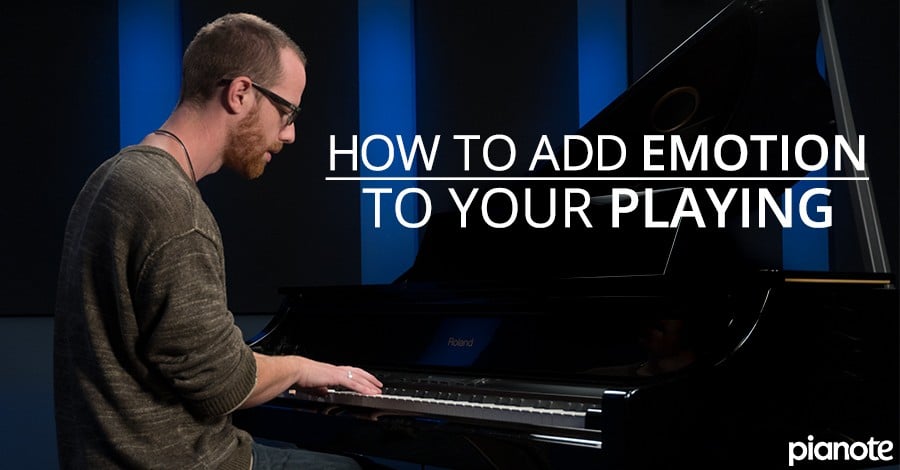
As a piano player, you already know the importance of practice, working on technique and muscle memory to build your skills and become a more accomplished player. But what use is all this practice if you feel you still can’t express yourself through your instrument? Here’s a few tips to infuse some emotion into your playing!
1) Experiment with tempo and dynamics
Think for a moment about how a person expresses themselves when they talk. When someone is angry, they might talk louder. Or when a person feels excited, maybe they talk faster than normal. The same principle can be applied to music! Experiment with a simple a musical phrase and think about how you’d play it sadly.
You might play the piano more softly. How about happily? How does the emotion behind your playing affect your playing? One of the easiest ways to add emotion to your playing is to subtly switch up your tempo and dynamics. It sounds so easy, but it really works!

2) Combine major chords with minor chords
Another great way to add some emotion to your playing is by creating contrast. So if you’re finding that your major chord progression is feeling a little stale, try adding in a minor chord to spice things up!
A quick way to pick a minor chord is to find the relative minor of your ‘I’ chord. Sometimes a chord substitution as simple as that can create all the difference.
3) Learn some four-note chords
Using four note chords in a chord progression really helps to add some emotional complexity to your music. A major 7th chord can sound airy and dreamlike when played next to a simple major triad.
Or a minor 9th chord can add a lot of tension under a simple melody. Every note added to a chord will give it a slightly altered colour, so play around with what notes work to create different emotions in your chords.

These are just a few ways to add emotion to your piano playing. Of course, there are many more! You can apply these ideas to your basic practicing, free-improvisation or songwriting. So next time you sit down at the piano try to think about expressing yourself through your technique AND your emotions
Jordan Leibel is passionate about songwriting, improvisation, and helping you become a creative musician! He’s worked as a composer for film, commercial, and theatre projects as well as a session musician and producer for recording work.
/marketing/pianote/promos/april/banner-bg-m.webp)
We use cookies for traffic data and advertising. Cookie Policy »
/marketing/pianote/promos/april/banner-title.webp)